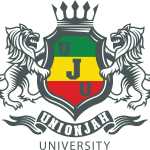Title : Emperor Haile Selassie I and Netherlands
By UnionJah Observer | April 28, 2025
Emperor Haile Selassie I and The Netherlands: Royal Bonds Across the Continents
🇳🇱 The Netherlands — A Kingdom of Tradition and Global Reach

The Kingdom of the Netherlands, with its deep traditions of royalty, trade, and diplomacy, welcomed Emperor Haile Selassie I with great honor during his European tours.
At a time when Africa’s voice was rising on the world stage, Ethiopia — under the Lion of Judah — stood proudly among Europe’s most ancient monarchies.
Haile Selassie’s visit to the Netherlands was a celebration of two sovereign traditions, meeting across history and continents.
The Historic Visit
- Haile Selassie visited the Netherlands in the 1950s during one of his many grand diplomatic missions across Europe.
- He was officially received by Queen Juliana, monarch of the Netherlands from 1948 to 1980.
- Full state honors were given: military parades, royal banquets, and ceremonial meetings at palaces such as Paleis Huis ten Bosch and Paleis Noordeinde.
The visit symbolized mutual respect between the ancient Solomonic dynasty of Ethiopia and the constitutional monarchy of the Netherlands.
Themes of the Visit
- Monarch-to-Monarch Diplomacy:
The visit emphasized respect between two reigning royal houses — the House of Solomon and the House of Orange-Nassau. - Global Trade and Peace:
Discussions focused on expanding trade relations and promoting Ethiopia’s development through international cooperation. - Education and Culture:
Ethiopia sought to learn from Dutch advances in education, infrastructure, and governance, adapting lessons for African modernization.
Haile Selassie proclaimed: “Let nations meet not in war but in peace, and in the noble exchange of culture and progress.”
Significance of the Visit
- Strengthening Ethiopia’s Global Status:
The Emperor’s tour helped elevate Ethiopia’s position among world powers — not as a former colony, but as a sovereign peer. - Royal Solidarity:
The visit reaffirmed the idea that monarchies could work together in modern diplomacy, upholding ancient traditions while adapting to modern needs. - Support for African Sovereignty:
By being treated with full royal honors, Haile Selassie demonstrated that Africa’s ancient kingdoms demanded and deserved full respect on the global stage.
Cultural Highlights
During his stay:
- Haile Selassie inspected the Dutch Royal Guards and was celebrated by thousands lining the streets of The Hague and Amsterdam.
- He attended grand receptions at royal palaces, where Ethiopian and Dutch dignitaries toasted to friendship and peace.
- He visited universities and museums, symbolizing a bond not only of politics but also of education, science, and cultural exchange.

Ethiopia’s Message to the World
Through his engagement with the Netherlands:
- Haile Selassie showcased Ethiopia’s role as a bridge between Africa and Europe — ancient in tradition, but forward-looking in vision.
- Ethiopia stood as a model for other African nations: a sovereign nation participating equally among the world’s traditional powers.
- The Emperor reinforced the importance of peace, learning, and economic cooperation.
🌟 Final Reflection
In the land of tulips, windmills, and royal traditions, Emperor Haile Selassie I was not a guest but a respected sovereign.
His visit to the Netherlands was a powerful affirmation: the House of Solomon and the House of Orange-Nassau could stand side by side, celebrating the dignity, resilience, and future of their peoples.
As the Ethiopian flag flew beside the Dutch tricolor, a message rang across the continents: “In unity, in peace, and in sovereignty, the world finds its truest strength.”

